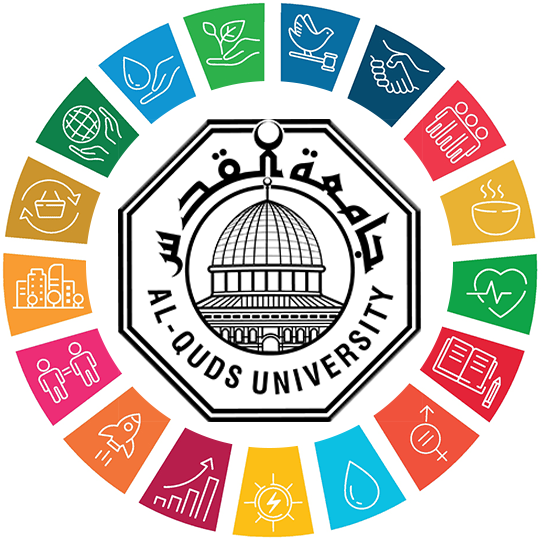7K
Introduction
Water consumption is a crucial factor in the overall sustainability of any institution, particularly in regions where water resources are scarce or under pressure. By analyzing and managing water consumption at Al-Quds University, the institution can contribute to water conservation efforts and promote responsible water usage among its community members. This document will discuss the water consumption at Al-Quds University in terms of litres per person (students and faculty) per day.
Current Water Consumption at Al-Quds University
A. Overview of Water Sources
- Our university primarily depends on a variety of water sources which include municipal water supply and groundwater, among other resources.
- We maintain an open dialogue about the reliability and quality of these water sources. This also involves addressing any challenges or concerns related to the availability of water, ensuring our commitment towards maintaining a sustainable water management system.
B. Water Consumption Data
- At Al-Quds University, we maintain comprehensive data on our total water consumption, encompassing both potable and non-potable water uses.
- We further categorize this consumption data into specific areas such as irrigation, drinking water, sanitation, and other uses, to identify our primary water consumption areas.
- To get a better understanding of individual water usage, we calculate the average water consumption per person per day. This is determined by dividing the total water consumption by the total number of our university community members, including both students and faculty.
Factors Affecting Water Consumption at Al-Quds University
A. Population and Facility Use
- At Al-Quds University, we recognize the significant impact of population growth and facility use on water consumption. As our university community expands, the demand for water in our facilities inevitably increases.
- We also thoroughly analyze the correlation between enrollment fluctuations and campus activities with water usage patterns. This enables us to comprehend and adapt to changes in water consumption, allowing us to manage our resources more effectively and sustainably.
B. Infrastructure and Technology
- In our ongoing commitment to sustainability, we regularly evaluate the effect of Al-Quds University’s infrastructure, including plumbing and irrigation systems as well as water fixtures, on overall water consumption. This assessment allows us to identify potential areas for improvement and strategize effective ways to conserve water.
- Additionally, we have integrated various water-efficient technologies within our infrastructure, such as low-flow fixtures, water-saving appliances, and intelligent irrigation systems. We continually monitor and appraise their effectiveness in reducing water consumption, affirming our dedication to sustainable water management at the university.
C. Behavioral Factors
- Recognizing the role that individual actions play in overall water usage, we regularly examine how the behaviors and habits of students and faculty at Al-Quds University impact water consumption. This includes aspects like personal hygiene practices, water usage in laboratories, and other day-to-day activities. Understanding these behaviors allows us to identify opportunities for education and awareness campaigns.
- Moreover, Al-Quds University is proud to host various water conservation initiatives and campaigns designed to encourage responsible water use within our community. These initiatives serve not only to reduce our water footprint but also to instill a culture of environmental stewardship among our students and staff.
Recommendations for Reducing Water Consumption at Al-Quds University
A. Infrastructure and Technology Upgrades
- At Al-Quds University, we are consistently identifying areas where we can make improvements to reduce our water footprint. This involves identifying opportunities for upgrading or retrofitting water fixtures, appliances, and irrigation systems, which will significantly reduce our overall water consumption.
- Additionally, we are actively exploring the potential for integrating more advanced water-saving technologies into our campus infrastructure. This includes considering the implementation of systems for rainwater harvesting and greywater recycling, which can provide substantial water savings and further contribute to our commitment to sustainability.
B. Education and Awareness
- At Al-Quds University, we are committed to fostering a culture of water conservation among our community members. To this end, we have developed and implemented a variety of educational campaigns designed to promote water-saving practices among both students and faculty.
- Recognizing the high water consumption in certain areas on campus, such as laboratories and kitchens, we’ve made a particular effort to provide focused training and resources in these areas. Our goal is to equip everyone with the knowledge and tools necessary to minimize water use, no matter where they are on campus.
C. Policy and Planning
- Al-Quds University has firmly established water conservation goals and targets, integrating them seamlessly into the core of our campus planning and decision-making processes. These benchmarks act as a guide, steering us towards a more sustainable future and ensuring that every decision made takes into account our commitment to conserve water.
- To further encourage water-efficient practices, we have formulated and enforced a set of comprehensive policies and guidelines. These directives govern all aspects of campus operations and maintenance, ensuring that each facet of our university’s functioning is aligned with our water conservation objectives.
